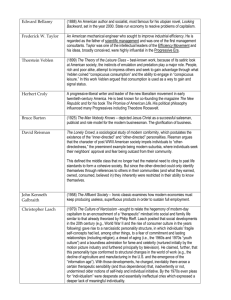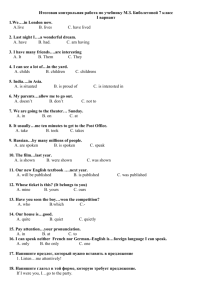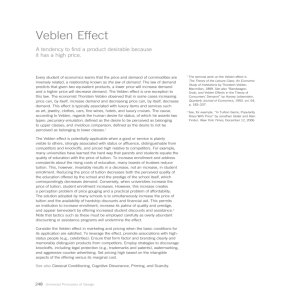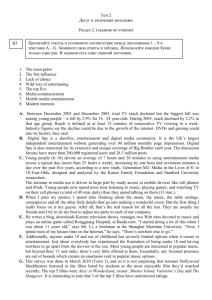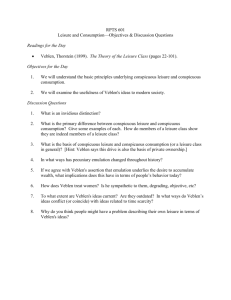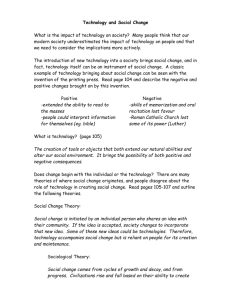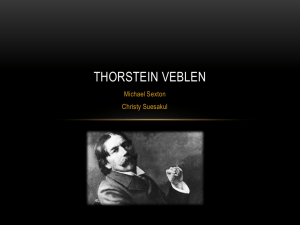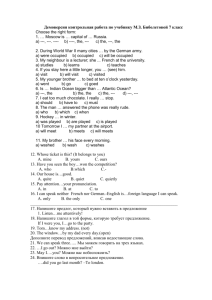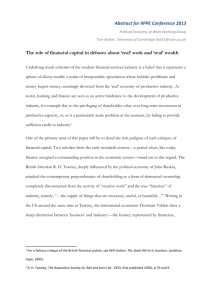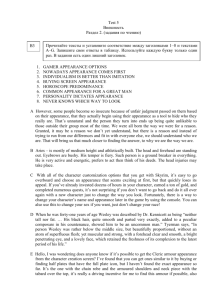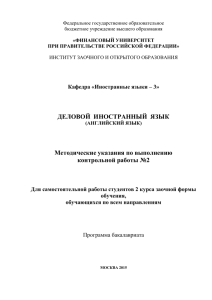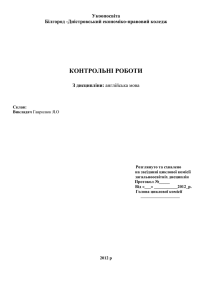2 вариант
advertisement
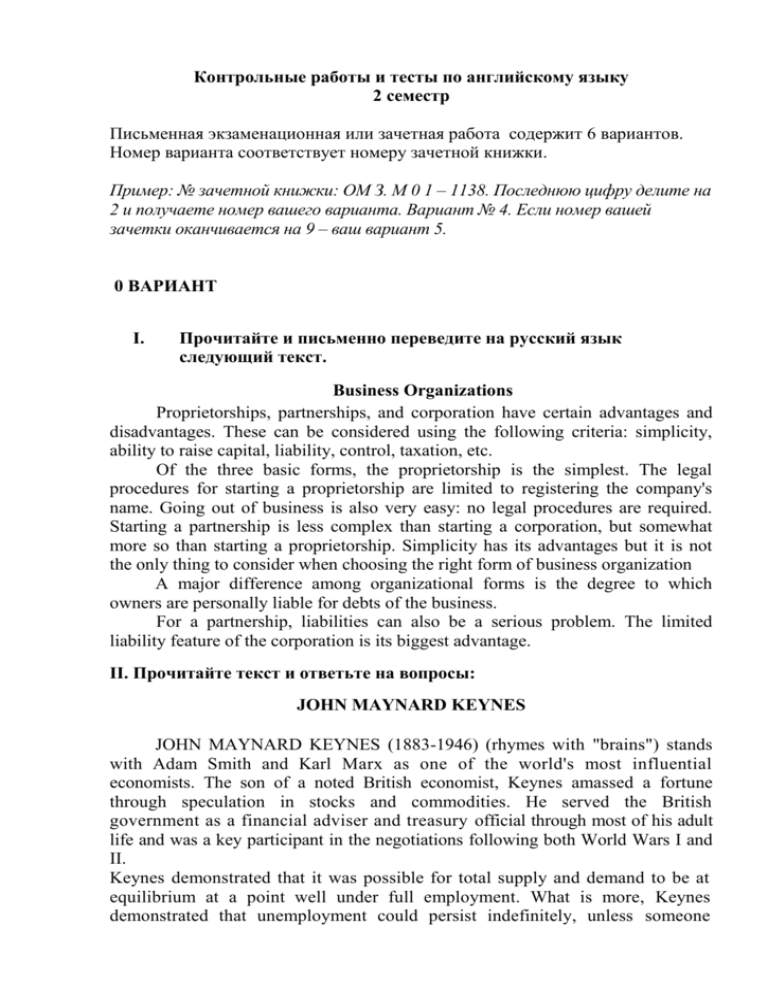
Контрольные работы и тесты по английскому языку 2 семестр Письменная экзаменационная или зачетная работа содержит 6 вариантов. Номер варианта соответствует номеру зачетной книжки. Пример: № зачетной книжки: ОМ З. М 0 1 – 1138. Последнюю цифру делите на 2 и получаете номер вашего варианта. Вариант № 4. Если номер вашей зачетки оканчивается на 9 – ваш вариант 5. 0 ВАРИАНТ I. Прочитайте и письменно переведите на русский язык следующий текст. Business Organizations Proprietorships, partnerships, and corporation have certain advantages and disadvantages. These can be considered using the following criteria: simplicity, ability to raise capital, liability, control, taxation, etc. Of the three basic forms, the proprietorship is the simplest. The legal procedures for starting a proprietorship are limited to registering the company's name. Going out of business is also very easy: no legal procedures are required. Starting a partnership is less complex than starting a corporation, but somewhat more so than starting a proprietorship. Simplicity has its advantages but it is not the only thing to consider when choosing the right form of business organization A major difference among organizational forms is the degree to which owners are personally liable for debts of the business. For a partnership, liabilities can also be a serious problem. The limited liability feature of the corporation is its biggest advantage. II. Прочитайте текст и ответьте на вопросы: JOHN MAYNARD KEYNES JOHN MAYNARD KEYNES (1883-1946) (rhymes with "brains") stands with Adam Smith and Karl Marx as one of the world's most influential economists. The son of a noted British economist, Keynes amassed a fortune through speculation in stocks and commodities. He served the British government as a financial adviser and treasury official through most of his adult life and was a key participant in the negotiations following both World Wars I and II. Keynes demonstrated that it was possible for total supply and demand to be at equilibrium at a point well under full employment. What is more, Keynes demonstrated that unemployment could persist indefinitely, unless someone stepped in to increase total demand. Although Adam Smith had written The Wealth of Nations about the time of the American Revolution, by the 1930s little had changed in the thinking of mainstream economists. Most would have agreed with Smith, that the best thing government could do to help the economy would be to keep its hands off. They reasoned that as long as the economy was free to operate without interference, the forces of supply and demand would come into balance. Then, with total supply and demand in equilibrium, everyone looking for work could find a job at the prevailing wage, and every firm could sell its products at the market price. But the 1930s was the period of the Great Depression. Despite the assurances of the classical economists, the fact was that unemployment and business failure had reached record proportions in the United States and the rest of the industrialized world. It was at this time (1936) that Keynes' General Theory of Employment, Interest, and Money was published. The General Theory transformed economic thinking in the 20th century, much the way that The Wealth of Nations had in the 18th. The "someone" Keynes had in mind was government. He reasoned that if, for example, government spent money on public works, and the income received by formerly idle workers would lead to increased demand, a resurgence of business activity and the restoration of full employment. The suggestion that government abandon laissez-faire in favour of an active role in economic stabilization was regarded as revolutionary in the 1930s. Since then, however, the ideas advanced by the "Keynesian Revolution" have become part of conventional wisdom: Now, whenever a nation appears to be entering into a period of recession or inflation, economists and others immediately think of steps the government might take to reverse the trend. Вопросы по тексту. 1. What was Maynard Keynes's occupation? 2. What role did he play in the negotiations following both World War I and II? 3. How do you find the thinking of mainstream economists by the 1930s? 4. When did Keynes's General Theory transform economic thinking in the 20th century? 5. What is full employment? 6. What was regarded as revolutionary in the 1930s? III. Вспомните употребление модальных глаголов и выполните следующие упражнения. 1. Put in the necessary modal verbs. 1. There is no stop near this building, you … to get off at the next stop. 2. These things are not duty-free. You … to pay duty on them. 3. If you don’t leave now, you … not to come to the concert on time. 4. When … the Sellers to deliver the goods? 5. As the Buyer … not provide shipping facilities the Seller … to deliver the goods on CIF terms. 2. Translate the following sentences into English. 1. Можно посмотреть Ваши права? 2. Платить сейчас? 3. Вы можете заплатить позже. 4. Можно нам заказать партию товара? 5. Ты должен сделать это прямо сейчас. 3. Find the modal verbs in the sentences and translate them. 1. Marketers should inform potential customers of where goods can be bought and how much they cost. 2. A manufacturer must establish a system that keeps products moving steadily from the factory to the consumer. 3. Before selling goods you must do a lot of market research. 4. The information can be obtained from trade representations. 5. The information you are interested in should be taken into consideration. IV. TEST Закончить предложения, выбрав один из предложенных вариантов 1 .When Mark arrived, the Johnsons______dinner, but stopped in order to talk to him. a) were having c) had been having b) had d) was having 2. While Tom______a book, Marhta______TV. a) was reading, watched c) was reading, was watching b) read, watched d) read, was watching 3. The food that Ann is cooking in the kitchen______delicious. a) is smelling c) smelt b) smells d) will smell 4. We called our friends in London yesterday to tell them about the reunion that we______. a) will plan c) plan b) were planning d) have planned 5. Catherine is studying law at the university, and so______ Nick. a) is c) was b) does d) were 6.1 feel terrible. I think I______to be sick. a) will c) am going b) go d) will be going 7. My colleagues usually______four days a week, and tills week they______five days. a) work, work c) are working, are working b) are working, work d) work, are working 8. It______outside; 1 do not like to walk in such weather. a) rains c) is raining b) is rain d) is rained 9. I______a very difficult day tomorrow. I need to prepare for the exam. a) will have c) have b) am having d) would have 10. At 10 o'clock in the morning on Wednesday Tom______ a delegation in the office. a) will receive c) will be receiving b) is receiving d) would receive 11. Although the sun was shining, it was still cold, because it ______hard for two hours. a) had been raining c) had rained b) was raining d) is raining 12. She______at the parcel long enough, before she______ that it was for her brother. a) had been looking, had understood b) had been looking, understood c) was looking, understood d) was looking, had understood 13.1_____to the cinema but my friend persuaded me to stay. a) am not going c) did not go b) was going d) had been going 14. We were good friends, we______each other for years. a) had known c) were knowing b) had knowing d) know 15. We were extremely tired at the end of the journey. We ______for more than 24 hours. a) had travelled c) had been travelling b) were travelling d) travel 16. How long______this book? How many pages of this book______? a) have you been reading, have you been reading b) have you read, have you read c) have you read, you read d) have you been reading, have you read 17. We always go to Saint Petersburg for our holidays. We ______there for years. a) have been going c) go b) are going d) were going 18. I have lost my key again. I______things. I lose things too often. a) always lose c) have always lost b) am always losing d) was always losing 19. The economic situation is already very bad and it______ worse. a) is getting c) got b) gets d) would be getting 20. What time______your friend______tomorrow? a) will arrive c) will be arriving b) is arrived d) will arriving 1 ВАРИАНТ I. Прочитайте и письменно переведите на русский язык следующий текст: The Sole Proprietorship The owner and the business are synonymous in the eyes of the law. All assets in the firm are owned by the proprietor, subject only to the liabilities incurred in its establishment and operation. The proprietor is solely responsible for all personal and business debts and any losses incurred, assume the entire firm’s risks, provide most of its capital, and provide its total management. The only requirement for its establishment is that the owner obtains any licenses required by the city, state and start operations. The proprietorship form has several advantages, such as: simplicity of organization; owner’s freedom to make all decisions and owner’s enjoyment of all profits; minimum legal restrictions; ease of discontinuance and tax advantages. Disadvantages of the sole proprietorship are owner’s possible lack of ability and experience; limited opportunity for employees; difficulty in raising capital; limited life of the firm is unlimited liability of proprietor. II. Прочитайте текст и ответьте на вопросы: Thorstein Veblen: Critic of the Market System In 1899 conventional wisdom of the economists of that day was jolted with the publication of Veblen's The Theory of the Leisure Class. A professor of economics at the University of Chicago, Veblen said much about contemporary economics and social behaviour that angered and upset his colleagues. In what may be his most famous contribution, Veblen challenged the assumptions built into the laws of supply and demand. One o f these * * i /M I assumptions was that of "consumer sovereignty." Veblen questioned the assertion that the consumer was a king who demanded and received the best goods and services at the lowest prices. Instead, he argued, consumers were subject to all kinds of social and psychological pressures that led them to make some very unwise decisions. To illustrate, he coined the term conspicuous consumption to describe the tendency of the "leisure class" (the wealthy) to buy goods and services simply to impress others. This, in turn, led middle class consumers, and even the poor, to imitate the wealthy by buying goods for similar purposes. When that occurred, it was possible for the law of demand to be reversed. Quantity demanded increased at a high price rather than at a low one. For example, the demand for a 1-ounce bottle of an unknown brand of perfume priced at $1 was likely to be less than the same perfume selling for $15 an ounce. As for the other side of the market, Veblen argued that the desire for profits drove business interests into doing unscrupulous things. Some of these included efforts to eliminate competition, restrict output, build ever larger combinations of existing firms, and separate those who owned America's corporations from those who managed them. This, he predicted, would result in wasted resources and the inability of the economy to reach its full potential. From these observations, Veblen concluded that laissez-faire capitalism was probably destined to be replaced in the long run with a system more attuned to the needs of the people. Answer the questions. 1. What estimate did Veblen give to contemporary economics and social behavior in his work? 2. What assumptions did Veblen challenge? 3. How did Veblen consider the consumer? 4. Why does the "leisure class" buy goods and services (according to Veblen)? 5. Where did the desire for profits drive business interests? 6. What unscrupulous things did Veblen predict? 7. What is the destiny of laissez-faire capitalism? III. Вспомните употребление модальных глаголов и выполните следующие упражнения. 1. Put in the necessary modal verbs. 1. There is no stop near this building, you … to get off at the next stop. 2. These things are not duty-free. You … to pay duty on them. 3. If you don’t leave now, you … not to come to the concert on time. 4. When … the Sellers to deliver the goods? 5. As the Buyer … not provide shipping facilities the Seller … to deliver the goods on CIF terms. 2. Translate the following sentences into English. 1. Можно посмотреть Ваши права? 2. Платить сейчас? 3. Вы можете заплатить позже. 4. Можно нам заказать партию товара позже? 5. Ты должен сделать это прямо сейчас. 3. Find the modal verbs in the sentences and translate them. 1. Marketers should inform potential customers of where goods can be bought and how much they cost. 6. A manufacturer must establish a system that keeps products moving steadily from the factory to the consumer. 7. Before selling goods you must do a lot of market research. 8. The information can be obtained from trade representations. 9. The information you are interested in should be taken into consideration. IV. TEST Закончить предложения, выбрав один из предложенных вариантов 1. We______to the top of Holborn Hill before I______ that he was not smiling at all. a) had got, knew c) were getting, knew b) got, knew d) have got, have known 2. Turning from the Temple gate as soon as I______the warning, I______my way to Fleet Street, and then______ to Covent Garden. a) was reading, made, drove b) have read, made, drove c) had read, made, drove d) read, made, drove 3. Seventy-seven detective novels and books of stories by Agatha Christie______into every major language, and her sales______in tens of millions. a) are translated, are calculated b) were translated, were calculated c) have been translated, are calculated d) had been translated, were calculated 4. In recent years, scientific and technological developments ______human life on our planet, as well as our views both of ourselves as individuals in society and of the universe as a whole. a) have drastically changed c) are drastically changing b) drastically changed d) change drastically 5. Before we______from swimming in the river near the camp, someone______our clothes, and we had to walk back with our towels around us. a) returned, stole c) were returning, stole b) had returned, had stolen d) returned, had stolen 6. Our new neighbours______in Arizona for ten years before moving to their present house. a) had been living c) have been living b) lived d) were living 7. We went into the house by a side door and the first thing 1 ______was that the passages______all dark, and that she______a candle burning there. a) noticed, were, left b) had noticed, had been, had left c) noticed, were, had left d) have noticed, were, had left 8. The sun______brightly all day on the roof of my attic, and the room was warm. a) was shining c) has shone b) shone d) had been shining 9. Although the period that we call "the Renaissance" ______in Italy in the fourteenth century, this idea of rebirth in learning characterized other epochs in history in different parts of the world. a) begins c) began b) had begun d) will begin 10. Egyptians left no written accounts as to the execution of mummification, so the scientists______to examine mummies and establish their own theories. a) had c) are having b) have d) have had 11. In spite of the fact that it______all day long, the match ______and the stands were full of spectators. a) had been raining, was not cancelled b) rained, was not cancelled c) was raining, has not cancelled d) had rained, had not been cancelled 12. Many football fans claimed that after "Real FC"______ that important game it______no chance to win the championship. a) lost, had c) had lost, had b) lose, has d) will lose, will have 13. I wish he______last Friday but his flight______because of bad weather. If he______the next day I would have brought him by car. a) arrived, was cancelled, called b) had arrived, was cancelled, had called c) had arrived, had been cancelled, called d) arrived, have cancelled, had called 14. After many long years of devoted and patient instruction, the doctor______able to get the boy to clothe and feed himself, recognize and utter a number of words, as well as write letters and form words. a) was c) had been b) has been d) were 15. At the first stages of the Industrial Revolution advertising ______a relatively straightforward means of announcement and communication and was used mainly to promote novelties and fringe products which______unknown to the public. a) had been, were c) was, were b) had been, had been d) was being, were 16. Towards the end of the 19th century the larger companies ______more and more on mass advertising to promote their new range of products. The market during this period ______by a small number of giant, conglomerate enterprises. a) relied, has been controlled b) relied, had been controlled c) were relying, has been controlled d) relied, were controlled 17. To cater for the fitness boom of the 80s and provide the up-to-date facilities people want, over 1,500 private health and fitness clubs______during the past 15 years. a) were built c) have been built b) had been built d) will be built 18. In 1936 the British Broadcasting Corporation______to provide a public radio service. Since then the BBC ______by the establishment of independent and commercial radio and television, which______the BBC's broadcasting monopoly. a) was established, was influenced, removed b) was established, has been influenced, removed c) was established, has been influenced, had removed d) was established, had been influenced, removed 19. The Neolithic Age was a period of history which______ in approximately 6000 B.C. and______until 3000 B.C. a) began, lasted c) began, was lasting b) had begun, lasted d) had begun, had been lasting 20. A major problem in the construction of new buildings is that windows______while air conditioning systems a) have been eliminated, have not been perfected b) were eliminated, were not perfected c) had been eliminated, had not been perfected d) eliminate, are not perfected 2 ВАРИАНТ I. Прочитайте и письменно переведите на русский язык следующий текст. Partnership In the professions of law, medicine, and accounting partnerships have long been the main form of business organization. Along with small partnerships there have always been huge ones. Partnerships like the liability problems. To avoid the problem of unlimited liability a special form of organization knows as the limited partnership is used. A limited partnership has one or more general partners who put up some capital, run the business, and bear /нести/ the liabilities of the business. In addition, there are one or more limited partners who put up capital but have no voice in the firm's day-to-day management and do not share its liabilities. The limited partners are in much the same position as stockholders in a corporation. Recently, however, things have changed further. Many medical, legal and other professional partnerships decided to incorporate. Partnerships are based upon a partnership agreement, also known as Articles of Copartner ship. Without a written agreement, the partnership does not really exist. Many circumstances arise which cannot be foreseen and therefore must be anticipated. It should cover all areas of possible disagreement among the partners. It should define the authority and the rights and duties of each partner, and the limits to such authority. It should include an agreement on how profits and losses are to be divided. Partners may make special arrangements to pay members of the firm for services rendered; interest on capital investment, time spent, or advances drawings before the balance of profits is to be divided in an agreed ratio. Advantages of the partnership: 1. Ease of organization. 2. Combined talents, judgment, and skills. 3. Larger capital available to the firm. 4. Maximization of personal interest in the firm, 5. Definite legal status of the firm. 6. Tax advantages. Disadvantages of the partnership: 1. Unlimited liability. 2. Limited life. 3. Divided authority. 4. Danger of disagreement. II. Прочитайте текст и ответьте на вопросы. FRANK KNIGHT FRANK KNIGHT (1885-1972). Also a professor of economics at the University of Chicago, Frank Knight advocated free enterprise and laissez-faire politics. Knight pointed out that except for the basic necessities of life the purchase of anything could be described as "conspicuous consumption." Since, he noted, even Veblen would have conceded that people need more than the bare necessities, who was to say which purchases were reasonable? Should the government or some other higher authority decide what would be offered for sale? Of course not, Knight concluded, consumer demand ought to determine what goods and services would be provided. Turning to the supply side of the market, Knight defended profits as the driving force behind business. The quest for profit would move business to produce whatever the economy wanted. Meanwhile, the inescapable punishment of financial loss awaited those firms who failed to meet the market's demands. In his famous work, Risk, Uncertainty and Profit (1921), Knight answered critics who, like Veblen, had questioned the legitimacy of profits. Profits, he said, were the reward earned by business for accepting the uncertainties of the market. In this he distinguished between risk (which can be predicted and against which one can be insured) and the uncertainty of events that cannot be predicted. Everyone, for example, faces the risk of illness and can be insured against it. But sweater manufacturers can never know with certainty that the styles that they are producing today will still be in demand when they appear in the stores six months from now. Therefore, those manufacturers who guess correctly are entitled to the rewards they earn. Meanwhile, those who produced the wrong style or color will be motivated to do better next season or face ruin. Economists and others still debate the issues raised by Thorstein Veblen's challenges to the market system and Frank Knight's responses to them. But don't take our word for it. Pick up today's paper or news magazine, and see for yourself. Answer the questions. 1. How could the purchase of anything be described according to Frank Knight? 2. Who ought to determine which goods and services would be provided? 3. How did Knight consider profits? 4. Where could Knight answer critics who had questioned the legitimacy of profits? 5. What is the difference between risk and uncertainty. III. Вспомните употребление модальных глаголов и выполните следующие упражнения. 1. Put in the necessary modal verbs. 6. There is no stop near this building, you … to get off at the next stop. 7. These things are not duty-free. You … to pay duty on them. 8. If you don’t leave now, you … not to come to the concert on time. 9. When … the Sellers to deliver the goods? 10.As the Buyer … not provide shipping facilities the Seller … to deliver the goods on CIF terms. 2. Translate the following sentences into English. 11.Можно посмотреть Ваши права? 12.Платить сейчас? 13.Вы можете заплатить позже. 14.Можно нам заказать партию товара позже? 15.Ты должен сделать это прямо сейчас. 3. Find the modal verbs in the sentences and translate them. 1. Marketers should inform potential customers of where goods can be bought and how much they cost. 10.A manufacturer must establish a system that keeps products moving steadily from the factory to the consumer. 11.Before selling goods you must do a lot of market research. 12.The information can be obtained from trade representations. 13.The information you are interested in should be taken into consideration. IV. TEST Закончить предложения, выбрав один из предложенных вариантов 1. - How long______you______? — Since I was 17. a) have been driving c) did drive b) have driven d) do drive 2. She______always______in Moscow. a) —, lives c) has been living b) has lived d) has live 3. How long______you______Kate? a) did know c) have known b) have been knowing d) do known 4.1______here all my life. a) have lived c) am living b) have living d) live 5. Kate has lost her passport again, it is the second time this a) happens c) happened b) has happened d) is happening 6. Kate has been working here______. a) since two years c) for two years b) two years ago d) two years 7. The boy sitting next to me on the plane was nervous because he______before. a) has not flown c) had not flown b) did not fly d) has not been flying 8.1______a lot but I don't any more. a) was used to eat c) was eating b) used to eat d) used to eating 9.______next week, so we can go somewhere. a) I'm not working c) I don't work b) I won't work d) I shall not work 10. We are late. The film______by the time we get to the cinema. a) will be already started c) will already have started b) will already start d) already will start 11. Don't worry______late tonight. a) if I'll be c) when I'll be b) if I am d) if I be 12. At first I thought I______the right thing, but I soon realized that I______a serious mistake. a) did, made c) have done, have made b) had done, had made d) did, had made 13.1 hope Kate is coming soon. I______for two hours. a) am waiting c) had been waiting b) have been waiting d) waited 14. At last Kate came. I______for two hours. a) am waiting c) had been waiting b) have been waiting d) was waiting 15. She is going on holiday. This time next week she______ on a beach or______in the sea. a) is going to lay, swim b) will be lying, swimming c) will lie, swim d) is lying, swimming 16. —______you______the post office when you're out? - Probably. Why? - I need to mail the letter. Could you do it for me? a) are passing c) will be passing b) are going to pass d) will pass 17. We______for a walk when it______raining. a) will go, will stop c) are going, will stop b) will go, stops d) go, stops 18. When you______in Moscow again, you must come and see us. a) will go c) are b) will be d) are going 19. I'm going to read a lot of books while I______on holiday. a) am c) would be b) will be d) am going to be 20. -______you______your car this evening? — No. Do you want to borrow it? a) will be using c) are used b) will use d) do use 3 ВАРИАНТ I. Прочитайте и письменно переведите на русский язык следующий текст. Recruitment There are many ways in which an organization can recruit personnel. Posting a list of vacancies on the company notice board or publishing it in employee magazines is common. Similarly, a subordinate may be referred for a position by his or her superior. Another means of recruiting internally is to search in the organization's existing files. Some companies have a data base of their employees’ skills and special interests. But it is often necessary to recruit people from outside the organization. Advertising is a commonly used technique for recruiting people from outside. The advertising medium should be chosen according to the type of public the organization is aiming at. If a highly specialized person is required, a specialty publication such as a trade magazine may be most appropriate. Many national and local newspapers have a General Appointments section or a Classified Ads section for less specialized personnel. Radio and TV advertising of vacancies is relatively underdeveloped in most countries. Employment agencies may be another source of recruitment. They may include search services, otherwise known as headhunting, or provide management consulting. Current employees are sometimes encouraged to refer friends, family and excolleagues to fill a particular vacancy. II. Прочитайте текст и ответьте на вопросы. Alfred Marshall (1842-1924): Price Theory Pioneer The topics discussed in this text had their origins in the writings of the great English economist Alfred Marshall. His textbook, Principles of Economics (1890), and the doctrines that it discussed, became the standard for the teaching of that subject until well into the 1940's. Marshall spent most of his adult life as a professor of economics at Cambridge University. His most famous pupil, John Maynard Keynes, described Marshall as "the greatest economist of the 19th century". Interestingly, Keynes went on to become the most influential economist of the 20th century. Marshall is best known for the order that he made out of the theories of the earlier "classical economists" like Adam Smith, David Ricardo and John Stuart Mill. ("Classical" is the name given by modern economists to the theories of those whose views were most widely held during the 75 years following the publication of The Wealth of Nations). Despite the passage of 100 years since the publication of his Principles, his analysis of market forces is still relied upon to explain economic events. In Marshall's world, economic events could be explained in terms of the equilibrium market price resulting from the interaction of supply and demand. One of Marshall's lasting contributions was differentiating between supply and demand in the short run and the long run. Comparing the two forces to the blades of a scissors, he argued that neither could function without the other. But, just as (depending on how the scissors is held) one blade can be more active than the other, so supply and demand varies in importance in the long and short run. In the short run, the quantity of available goods is more or less fixed (because crops have been planted, production schedules set, etc.). Therefore it is the demand for those items that will be most influential in determining their price. In the long run, he went on, the opposite is true. Both farmers and businesses can add to or reduce their production facilities as the needs dictate. In that way the supply side of the market becomes most influential in determining price. III. Вспомните употребление модальных глаголов и выполните следующие упражнения. 1. Put in the necessary modal verbs. 1. There is no stop near this building, you … to get off at the next stop. 2. These things are not duty-free. You … to pay duty on them. 3. If you don’t leave now, you … not to come to the concert on time. 4. When … the Sellers to deliver the goods? 5. As the Buyer … not provide shipping facilities the Seller … to deliver the goods on CIF terms. 2. Translate the following sentences into English. 1. Можно посмотреть Ваши права? 2. Платить сейчас? 3. Вы можете заплатить позже. 4. Можно нам заказать партию товара позже? 5. Ты должен сделать это прямо сейчас. 3. Find the modal verbs in the sentences and translate them. 1. Marketers should inform potential customers of where goods can be bought and how much they cost. 6. A manufacturer must establish a system that keeps products moving steadily from the factory to the consumer. 7. Before selling goods you must do a lot of market research. 8. The information can be obtained from trade representations. 9. The information you are interested in should be taken into consideration. IV. TEST Закончить предложения, выбрав один из предложенных вариантов 1. Water______at 100 degrees. a) boils с) will boil b) is boiling d) will have been boiling 2. The weather • hotter and hotter. a) gets c) is getting b) has been getting d) get 3. The first modern Olympics______in Athens more than a hundred years ago. a) were taking place c) have taken b) took d) had taken 4. We______20 new buildings this year. a) built c) had built b) were building d) have built 5.1______always______if the service is bad in restaurants. a) -, complain c) will be complaining b) am complaining d) will complain 6. I______to the news on television at nine o'clock last night. a) was listening c) have been listening b) listened d) had been listening 7. After they______they cleared the table. a) ate c) have eaten b) had eaten d) were eating 8.1______for a whole hour! a) am waiting c) have been waiting b) was waiting d) had been waiting 9 I______John's mobile phone because I left mine at home. a) use c) used b) was using d) have been using 10. This juice______good. a) is tasting c) has been tasting b) tastes d) is being tasted 11. Long ago they______most houses out of wood. a) built c) were building b) have built d) had built 12. We still______life on other planets. a) didn't discover c) won't discover b) hadn't discovered d) haven't discovered 13.1______when my friend______. a) slept, called b) was sleeping, was calling c) was sleeping, called d) slept, was calling 14. Those potatoes______for an hour. a) have been boiling c) are boiling b) were boiling d) had been boiling 15. You______always______money! a) —, borrow c) will borrow b) has been borrowing d) are borrowing 16. They______for four hours before they______the top of the mountain. a) climbed, reached b) had been climbing, reached c) was climbing, reached d) climbed, has been reaching 17.1 think it______a difficult game. a) is going to be c) have been b) will be d) had been 18.1______ to you ever again. a) don't speak c) hasn't spoken b) am not going to speak d) will have been spoken 19.1______him tomorrow, he is expecting my call. a) phone c) am going to phone b) am phoning d) will have phoned 20. The boat______the island on Friday. a) is leaving c) is going to leave b)leave d)leaves 4 ВАРИАНТ I. Прочитайте и письменно переведите на русский язык следующий текст. Resume, Curriculum Vitae & Application Form When a person is eager to get a job he is often to fill in a resume (USA) or curriculum vitae (UK) or a standard printed application form. The forms can be laid out in different ways but the information required will be almost the same. The information given by the candidate in these papers will be helpful in assessing the candidate’s suitability for the position. Curriculum vitae should usually contain the following information: name; address; telephone; fax; e-mail; date of birth; place of birth; nationality; marital status; objective; work experience; education; languages; hobbies and interests; references (UK) or testimonials (US). CVs or resumes as well as application forms will require the name and address of at least two individuals who can act as referees, which means those who can provide references. The candidate may name a vicar, a doctor, or an old family friend as one of referees. Normally, the firm will ask for the names of present or former employers or supervisors for whom the candidate has worked. II. Прочитайте текст и ответьте на вопросы. Karl Marx (1818-1883): Prophet of Socialism and Communism For more than half of Europe and a third of the world's population, history's greatest economist was Karl Marx. Born in Germany, Marx's revolutionary activities got him into trouble with the authorities, and from 1842 until his death in 1883 he lived his life in exile. In 1849, Marx moved to London, England, where he studied, wrote, and produced his greatest work, Das Kapital (Capital). Marx's single-minded dedication to his studies made it all but impossible for him to earn a living. Were it not for the financial help he received from his friend Frederick Engels, a wealthy textile manufacturer from Manchester, England, he and his family might have starved to death. As it was, they lived a life of poverty. In 1845, the League of the Just (later to change its name to the Communist League) asked Marx and Engels to prepare a statement of beliefs. They wrote The Communist Manifesto. The Manifesto, which contains some of the most memorable lines of revolutionary literature, concludes with: "... Let the ruling classes tremble at a Communistic revolution. The proletarians [workers] have nothing to lose but their chains. They have a world to win. Working men of all countries unite!" The Economic Theories of Karl Marx. It is not possible to summarize briefly everything that Karl Marx had to say about the world in which he lived. However, the following paragraphs describe some of his more important theories. The economic interpretation of history. In Marx's view, the course of history has been determined almost solely by economic forces. Forget about things like great men and women, religion, patriotism, and the like. Look instead, he said, at the economic events of the time to find the real reasons why people and states behaved the way they did. III. Вспомните употребление модальных глаголов и выполните следующие упражнения. 2. 3. 4. 5. 6. 1. 2. 3. 4. 5. 1. Put in the necessary modal verbs. There is no stop near this building, you … to get off at the next stop. These things are not duty-free. You … to pay duty on them. If you don’t leave now, you … not to come to the concert on time. When … the Sellers to deliver the goods? As the Buyer … not provide shipping facilities the Seller … to deliver the goods on CIF terms. 2. Translate the following sentences into English. Можно посмотреть Ваши права? Платить сейчас? Вы можете заплатить позже. Можно нам заказать партию товара позже? Ты должен сделать это прямо сейчас. 3. Find the modal verbs in the sentences and translate them. 1. Marketers should inform potential customers of where goods can be bought and how much they cost. 2. A manufacturer must establish a system that keeps products moving steadily from the factory to the consumer. 3. Before selling goods you must do a lot of market research. 4. The information can be obtained from trade representations. 5. The information you are interested in should be taken into consideration. IV. TEST Закончить предложения, выбрав один из предложенных вариантов 1. His grandfather______from his job a year ago. a) has retired c) retires b) was retiring d) retired 2. The backpacker knew there was a lake because they ______ it earlier in the day. a) have seen c) had seen b) saw d) hadn't seen 3.______he______about the opera before? a) had spoken c) has spoken b) was speaking d) did speak 4. What time______it______? a) did happen c) had happened b) has happened d) was happening 5. Tomorrow at five he______football. a) '11 play c) plays b) '11 be playing d) play 6. This time last year he______in London. a) lived c) '11 live b) was living d) has lived 7 I______for you for more than one hour. a) has waited c) was waiting b) have been waiting d) was waited 8. He______it for an hour before I came. a) have been doing c) had been doing b) had been done d) did 9- —_____he already______the doctor by that time? a) has seen c) was seeing b) did see d) had seen 10. She______her work already. a) hasn't finished c) finished b) has finished d) is finished 11. When I______it______yesterday. a) wake up, was raining c) woke up, was raining b) woke up, rained d) 've woken up, was raining 12. Will you______the bank when you go out? a) be passing c) have passed b) pass d) to pass 13. Last night I______home at 11. I______supper and then______to bed. a) have come, had. went c) came, have had, went b) came, had, went d) came, had, have gone 14. ______ you ______ many cities when you were in France. a) did visit c) are visiting b) have visited d) do visit 15. They______for 20 minutes when his mother came in. a) talked c) have talked b) were talking d) had been talking 16. The room looks very clean.______you______it? a) Did, clean c) Have, cleaned c) Do, clean d) Are, cleaning 17. Next year is my parents' tenth wedding anniversary. They ______married for 10 years. a) have c) '11 have b) are d) '11 have been 18. Next week he______to Paris on business. a) is going c) goes b) is going to go d) go 19. They______this article by 5 p.m. yesterday. a) have translated c) had translated b) translated d) had been translated 20. While he______tennis, he______his arm. a) played, was hurting c) was playing, hurted b) was playing, hurt d) played, hurt 21. This time next week he______in the Black Sea. a) swim c) '11 swim b) '11 be swimming d) swims 22. Last night I______in bed when suddenly the phone rang. a) read c) have read b) were reading d) was reading 23. He______for Moscow by yesterday night. a) had left c) has left b) left d) was leaving 24. He______very fast when the accident______. a) drove, happened b) was driving, has happened c) is driving, happened d) was driving, happened 25. We______from her since June. a) have heard c) had heard b) haven't heard d) weren't hearing 5 ВАРИАНТ I. Прочитайте и письменно переведите на русский язык следующий текст. Management & Human Resources Development Managers perform various functions, but one of the most important is proper utilization of people. Research reveals that worker performance is closely related to motivation; thus keeping employees motivated is an essential component of good management. Motivation refers to the stimulus that directs the behavior of workers toward the company goals. In order to motivate workers to achieve company goals, managers must be aware of their needs. Many managers believe workers will be motivated to achieve organizational goals by satisfying their fundamental needs for material survival. These needs include a good salary, safe working conditions, and job security. Although important, these needs don’t provide the primary motivation for many workers. Increased motivation is more likely to occur when work meets the needs of individuals for learning, self-realization, and personal growth. By responding to personal needs managers have altered conditions in the workplace and, consequently, many employees are motivated to perform more effectively. Innovative management approaches, such as job enrichment and job enlargement, have been adopted in many organizations. They are to meet both the fundamental and personal needs of workers. Job enrichment gives workers more authority in making decisions related to planning and doing their work. A worker is responsible for scheduling work-flow, checking quality of work produced or making sure deadlines. Job enlargement increases the number of tasks workers perform by allowing them to rotate positions or by giving them responsibility for doing several jobs. By improving the quality of work life through satisfaction on fundamental and personal employee needs, managers attempt to direct the behavior of workers toward the company goals. Прочитайте текст и ответьте на вопросы: Adam Smith and the Wealth of Nations SMITH (1723-1790). Seventeen seventy-six, the year that we associate with the signing of the Declaration of Independence, also marked the publication in England of one of the most influential books of our time, The Wealth of Nations. Written by Adam Smith, it earned the author the title "The father of economics." Smith objected to the principal economic beliefs of his day. He differed with the physiocrats who argued that land was the only source of wealth. He also disagreed with the mercantilists who measured the wealth of a nation by its money supply, and who called for government regulation of the economy in order to promote a "favourable balance of trade." In Smith's view, a nation wealth was dependent upon production, not agriculture alone. How much it produced, he believed, depended upon how well it combined labour and the other factors of production. The more efficient the combination, the greater the output, and the greater the nation's wealth. The heart of Smith's economic philosophy was his belief that the economy would work best if left to function on its own without government regulation. In those circumstances, self-interest would lead business firms to produce only II. those products that consumers wanted, and to produce them at the lowest possible cost. They would do this, not as a means of benefiting society, but in an effort to outperform their competitors and gain the greatest profit. But all this self interest would benefit society as a whole by providing it with more and better goods and services, at the lowest prices. To explain why all society benefits when the economy is free of regulation, Smith used the metaphor of the "invisible hand": "Every individual is continually exerting himself find the most advantageous employment for whatever capital he can command. It is his own advantage, not that of society, which he has in mind, but is in this, as in many other cases, led by an invisible hand to promote an end which was no part of his intention, for the pursuit of his own advantage necesserily leads him to prefer that employment which is advantageous to society." The "invisible hand" was Smith's name for the economic forces that we today would call supply and demand, or marketplace. He sharply disagreed with the mercantilists who, in their quest for a "favourable balance of trade," call for regulation of the economy. Instead, Smith agreed with the physiocrats and their policy of "laissez-faire," letting individuals and businesses function without interference from government regulation private monopolies. In that way, the "invisible hand" would be free to guide the economy and maximize production. The Wealth of Nations goes on to describe the principal elements of the economic system. In a famous section, Smith turned to the pin industry to demonstrate how the division of labour and the use of machinery increased output. "One man draws out the wire, other straights it, a third cuts it, a fourth points it, a fifth grinds it the top for receiving the head; to make the head requires two or three distinct operations." Although modern technology has improved the methods which pins are produced, the principles pertaining to division of labour remain unchanged. Similarly, other sections dealing with the factors of production, money and international trade are as meaningful today as when they were first written. You can see, therefore, that Thomas Jefferson's Declaration of Independence and Adam Smith's The Wealth of Nation have more in common than a birthday. More important, both contain some of the best descriptions of the principle upon which our political and economic systems are based. Answer the questions. 1. When was the book "The Wealth of Nations" published? 2. Why did Smith desagree both with the mercantilists and physiocrats? 3. What was the heart of Smith's economic philosophy? 4. What did Smith understand under the "invisible hand"? 5. Why do the principles pertaining to the division of labour remain unchanged? III. Вспомните употребление модальных глаголов и выполните следующие упражнения. 1. Put in the necessary modal verbs. 7. There is no stop near this building, you … to get off at the next stop. 8. These things are not duty-free. You … to pay duty on them. 9. If you don’t leave now, you … not to come to the concert on time. 10.When … the Sellers to deliver the goods? 11.As the Buyer … not provide shipping facilities the Seller … to deliver the goods on CIF terms. 2. Translate the following sentences into English. 6. Можно посмотреть Ваши права? 7. Платить сейчас? 8. Вы можете заплатить позже. 9. Можно нам заказать партию товара позже? 10.Ты должен сделать это прямо сейчас. 3. Find the modal verbs in the sentences and translate them. 1. Marketers should inform potential customers of where goods can be bought and how much they cost. 6. A manufacturer must establish a system that keeps products moving steadily from the factory to the consumer. 7. Before selling goods you must do a lot of market research. 8. The information can be obtained from trade representations. The information you are interested in should be taken into consideration. IV. TEST Закончить предложения, выбрав один из предложенных вариантов 1. She______her exam by two o'clock. a) passed c) has passed b) have passed d) had passed 2. A plate slipped out of my hands when I______the washing up. a) was doing c) had done b) did d) was done 3. It's nine o'clock. The pupils______a lesson. a) will be having c) have b) are having d) have had 4. He______ill twice so far this year. a) is c) was b) has been d) is being 5. By summer you______English for two years. a) '11 study c) '11 have been studying b) have studied d) are studying 6. What______you______at this time yesterday? a) was doing c) did do b) have done d) were doing 7. We're late. The film______finished by the time we______ to the centre. a) is finished, get b) will be finished, '11 get c) will have finished, get d) finished, '11 get 8. The documents______by the time I come. a) '11 have been typed c) '11 be typed b) '11 have typed d) will be typing 9. Last year 1______ill only twice. a) was c) am b) have been d) has been 10. By the 8th of April my mother_______at school for twenty years. a) '11 work c) has worked b) '11 be working d) '11 have been working 11.1______these sentences for one hour. a) am writing c) have written b) 've been writing d) was writing 12. We______it for half an hour when the teacher entered. a) have discussed c) discussed b) were discussing d) had been discussing 13. It______for three hours. a) was snowing c) is snowing b) snowed d) has been snowing 14. My sister learns French and she______very well. a) does c) is doing b) do d) did 15. My nephew is at college now, and my son______to college next year. a) is going c) '11 go b) is going to go d) goes 16. His friend______two English articles into Russian. a) translated c) has translated b) have translated d) translates 17. They______us several telegrams lately. a) send c) sent b) 've sent d) are sending 18. Don't worry! The child______better. a) get c) have got b) gets d) is getting 19. He______under treatment for two months but there are no signs of improvement. a) 's been c) was b) is d) is being 20. Doctor Ivanov______people for heart trouble. a) is treating c) treats b) has treated d) treat 21. This dictionary______much and is very valuable to me. a) costed c) cost b) is costing d) had cost 22.1 wonder why John______a job yet. a) finds c) didn't find b) hasn't found d) found 23. The company______now for building workers. a) advertised c) was advertised b) has advertised d) is advertising 24. The hard work______on his health. a) tells c) is telling b) is told d) was telling 25. Peter______up photography as a hobby. a) took c) has taken b) was taken d) takes
